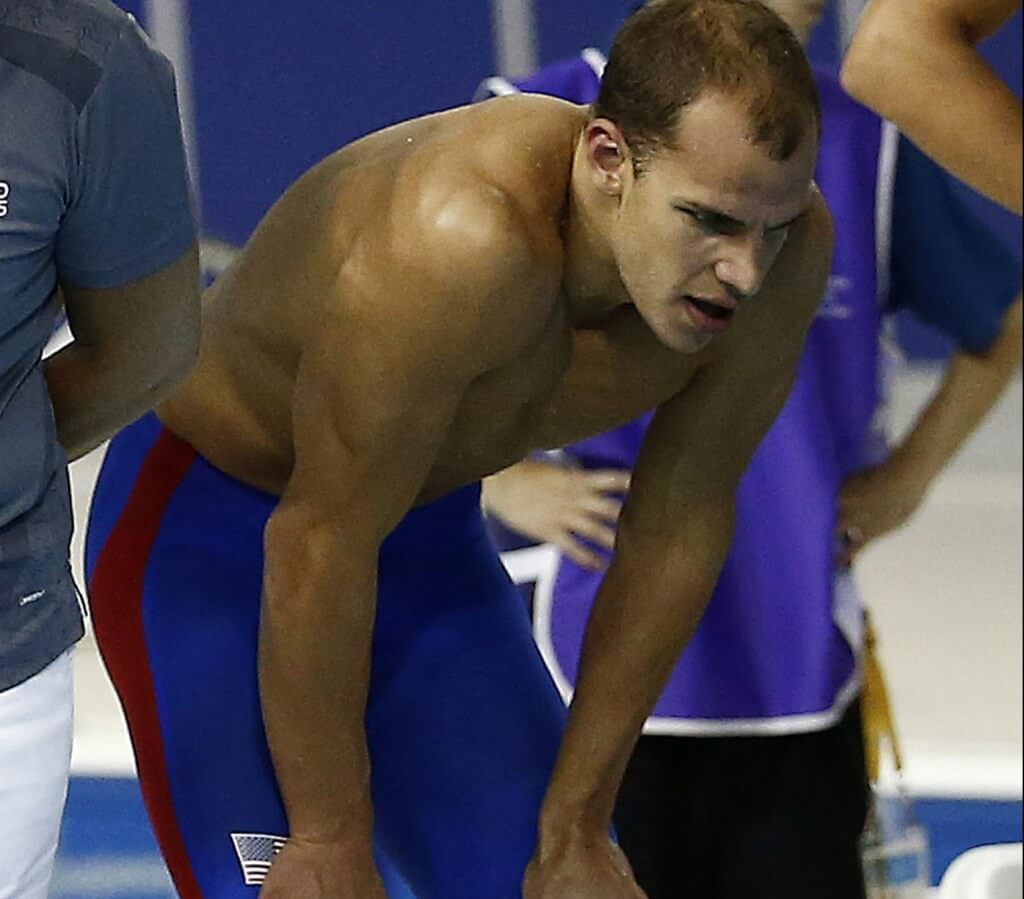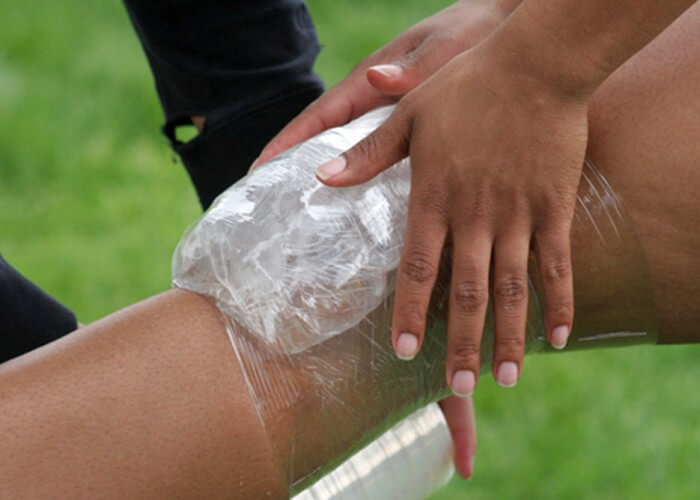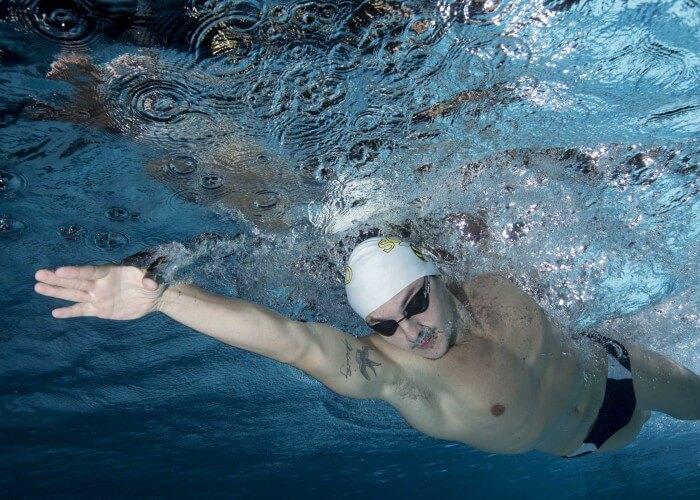A Message to Those Who Hide Their Injuries

By Kaylie Noll, Swimming World College Intern
Swimming is tough. It’s a sport that requires every ounce of energy from your mind, body, and soul.
But sometimes your body can’t take it.
At first you probably don’t believe you’re actually injured. You’re just tired. Just sore. Just having an off day. You’ll be fine tomorrow. You say this to your coach. You repeat it to your teammates. To your parents. To yourself.
But then it’s back the next day.
It’s just a ghost pain, you think. Nothing some ibuprofen can’t help, you think. You down a couple pills after practice. You ice. You take all the preventative steps you can. You think you’re better.
The pain hits again, though. And again. And again.
Maybe some days it’s a dull ache all over. Some days it’s a sharper pain, in a centralized area. Some days it doesn’t hurt whatsoever, and you’re on top of the world…until it rears its ugly head the next time you touch the water. Whatever the pain is like, you tell yourself that it’s just part of being an athlete. You comfort yourself with supposed rationale, thinking that this is what happens when you put in the time and effort. But the voice in the back of your head screams, “What if this isn’t normal?!”
You don’t want to stop and get out of practice. You’ve never been a quitter. Why start now? You need to finish this practice. You need the yardage. You need to perform well. You have goals you have been striving to reach all season. You’re a determined, hardened veteran of the sport.
You don’t want to be the swimmer that cries wolf. The swimmer that your teammates scoff at behind your back, saying things like, “they’re just trying to get out of the set,” or “they just want attention.” The thought of losing respect along with your skills terrifies you.
So you do what you can for a while, ignoring the pain during practice. Maybe you go to a trainer and you do some exercises, stretch it out, ice it or heat it. Maybe you do it all on your own. You just have to get through the season, you think. That’s all you have to do. You can’t be injured right now. Downplay it.
But downplaying it only makes it worse. The next thing you know, you can’t move in the water like you used to. Or you’re sitting out at a meet. Soon, it’s not only your body that is in pain, but your mind as well. You’re a shell of your former confident self, with worries, fear and regret filling your thoughts on a daily basis, in and out of the pool.
There’s a stigma about being injured when you’re a swimmer. Our wounds aren’t always visible because we aren’t a contact sport. But that doesn’t mean that there isn’t a real issue, or that it’s all in your head.
Whatever others may think, you need to take action immediately, instead of waiting for a miracle to happen. You need to tell your coach. You need to tell your parents. You need to stop swimming when your body is giving you clear signals that it can’t go on. You need to do what’s best for you, because if you are going to be the best you can be, you need your body to be the best it can be.
Injuries happen in our sport. And they can happen to anyone. You aren’t the only one in the swimming world that’s ever been in serious pain; so don’t be afraid to speak up, and get yourself help as soon as possible.
You can get through this. It will take time. And persistence. And effort.
But you will get through this, and emerge with a stronger body, mind, and soul.






Very true.
Julie Marshall
Boy is that the truth . Been there ,and I’m there right now. Can’t lift my left arm out of the water
I don’t hide my injuries but I don’t go on about them unless I find something humorous about it.
so true.. Now I’m looking at shoulder surgery because I kept swimming..and you can’t swim 3 months after surgery!!!
Alexandra Good
What injuries?
Mayte Cano
? me quedo como saco a la medida, parece que soy yo las primeros párrafos ?
Lee y aprende 😉
Yaa lo leí y si ntp llevo años trabajando eso con ale ? se qué aun me falta mucho por aprender